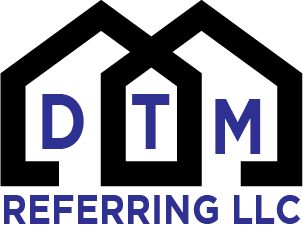LFRO Frequently Asked Questions
1) If a licensee is provided a waiver of dues under the LFRO policy, can the licensee list property of a family member or engage in limited brokerage activity?
No. Individuals granted a waiver, cannot list, sell, lease, rent, manage, counsel or appraise property under any circumstances. To do so would violate the terms of the waiver and lead to an assessment of membership dues, and possible sanction.
2) What real estate activities are authorized under the LFRO waiver?
The only activity authorized under the LFRO waiver is for brokers and licensees to refer clients and customers to the brokerage firm.
3) Does having a referral license hung in the Designated REALTORS® brokerage office qualify for the LFRO waiver?
In order for a REALTOR® (principal) to be exempt from paying size formula dues based on referral licensees, referrals must be made to the REALTOR®’s firm on a substantially exclusive basis and the licenses of referral licensees must be placed in a separate entity apart from the REALTOR®’s brokerage firm. An “entity” means a separate, legally recognized business, and includes all of the possible structures for that business permitted under state law. The rationale for the requirement that referral licensees be placed in a separate entity was the Board of Directors did not want to place an unnecessary burden on associations in determining which licensees in a REALTOR®’s brokerage company would be subject to the referral exemption. The existence of a state license which limits the activities of the licensee to referrals only, does not change the requirement that referral licensees be placed in a separate entity in order for REALTOR®’s to obtain the dues exemption.
4) Can a licensee have a LFRO waiver in one state and hold REALTOR® membership in another state?
While the LFRO policy clearly prohibits LFRO licensees from engaging in licensed activities in the state where the LFRO exemption is granted, the intent of the Committee and Board of Directors in adopting the LFRO policy is that any involvement in licensed activities other than referrals would violate the terms of the LFRO exemption. In other words, if the licensee is engaged in licensed real estate activities (albeit in another state), they would not qualify for LFRO status. The intent of the LFRO policy was that qualified licensees would be essentially inactive.
5) If someone is granted a LFRO waiver, can they still receive MLS access?
No. If a licensee is in a limited function referral office (LFRO) then it is anticipated that they will not need to access the MLS because they only are engaged in referrals and not listing, selling, leasing, renting, managing, counseling, or appraising real property.
6) What are the consequences if a licensee violates the terms of a LFRO waiver?
The exemption for any licensee may be revoked upon the individual being engaged in real estate licensed activities other than referrals, and dues for the current fiscal year may be imposed. Additionally, the association may discipline the REALTOR® for violation of a membership duty and impose sanctions authorized in the NAR Code of Ethics and Arbitration Manual.
7) If a REALTOR® is fined for violating the terms of a LFRO waiver, can the REALTOR® be terminated for non-payment of the fine?
Yes. The association should follow the procedures in its bylaws for nonpayment of financial obligations.
